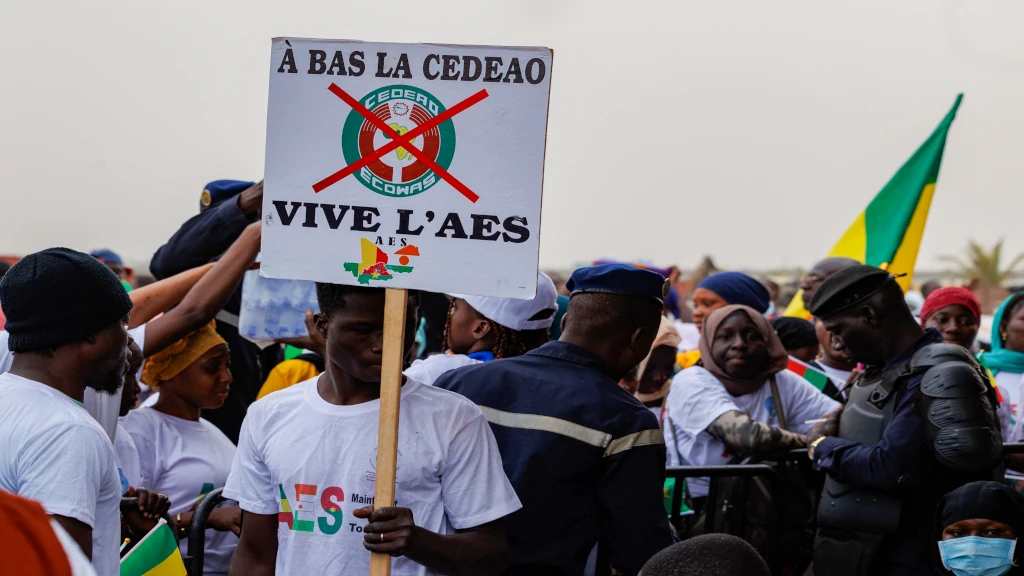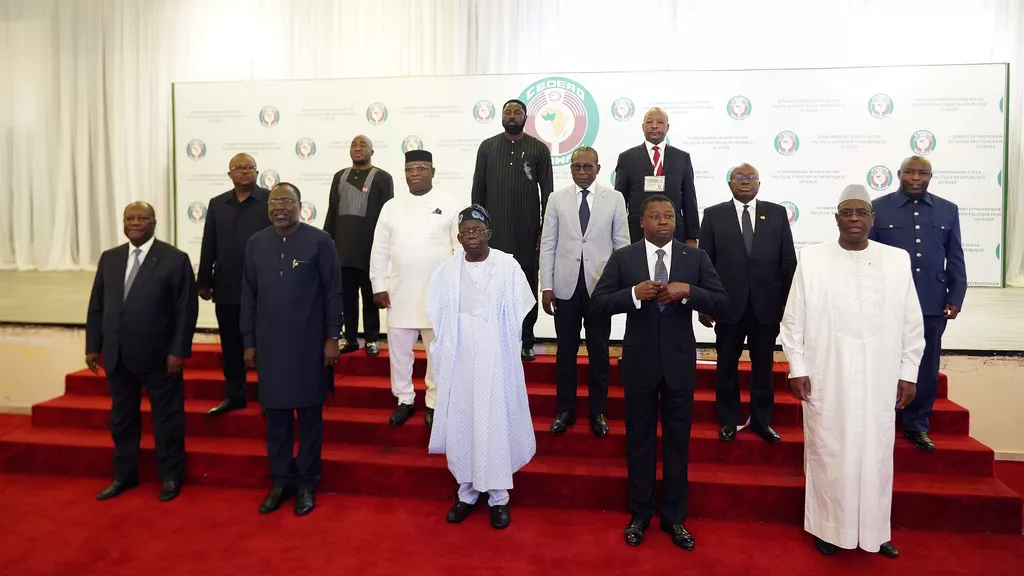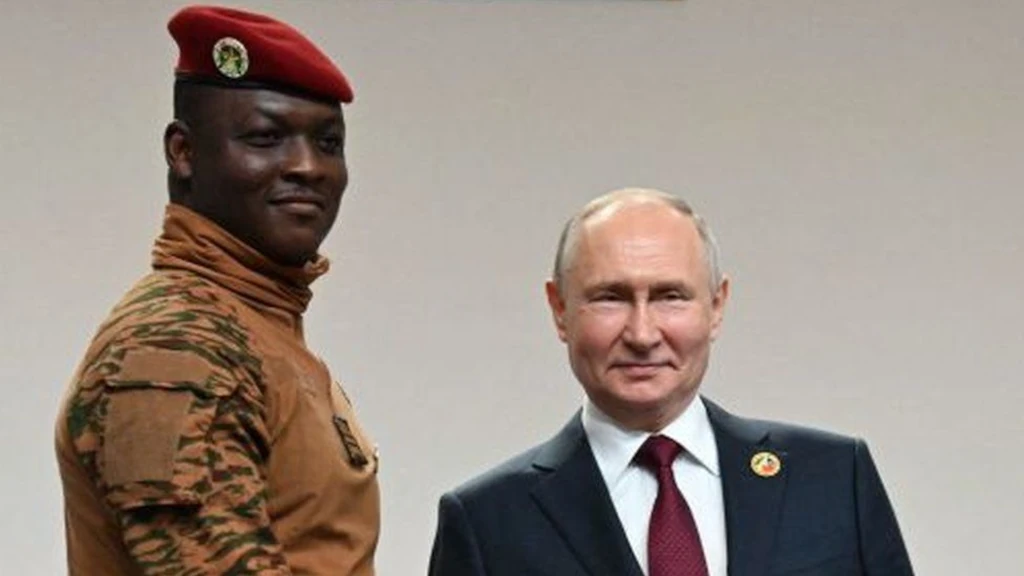Mali’s exit from the bloc comes as citizens complain about fallout of regions sanctions imposed following the two coups
By Hannane Ferdjani
Published On 8 Feb 2024
Bamako, Mali – It’s been a week since Mali’s military government announced its decision to withdraw from the Economic Community of West African States (ECOWAS) but Bamako, the country’s capital, is still buzzing with energy.
In the early hours of the morning, the roads are bustling with city buses pushing through traffic jams, while market vendors walk hastily to their stalls to get the day started. But beneath that layer of normality are mounting concerns about leaving the 15-member regional bloc which Mali joined in 1975.
“It has become harder to get by and provide for my family,” Djadjie Camara, a shopkeeper in the city told Al Jazeera. “ECOWAS is the organisation who started all of this and made our lives harder. Life is hard for us, but I trust that leaving ECOWAS will benefit us in the end.”
After back-to-back coups in Mali within a year led to Colonel Assimi Goita becoming head of state in May 2021, the bloc slapped economic sanctions on the landlocked nation to push the transitional government to hold elections within a reasonable timeframe.
But that hit an economy grappling with blows from the COVID-19 pandemic and shocks from Russia’s war in Ukraine, hard. Inflation rose, with the cost of basic items like oil and sugar more than doubling. Since then, many Malians, including Camara, have embraced the government’s gradual distancing from the regional entity.
Although ECOWAS ended up lifting some of those sanctions in July 2022, many continue to harbour resentment for the embargo that inflicted hardship upon them.
This was the main argument presented by the newly formed Alliance of Sahel States (l’Alliance des Etats du Sahel or AES), including Mali, Niger, and Burkina Faso, in a January 28th joint statement announcing their withdrawal from the bloc, which they said had imposed “illegal, illegitimate, inhumane, and irresponsible sanctions”.
The second point of contention is ECOWAS’s perceived failure to aid their “essential battle against terrorism and insecurity”.
Diverging visions of pan-Africanism
When ECOWAS was established by the Treaty of Lagos on May 28, 1975, its primary focus was economics, aiming to create a West African market encompassing several neighbours.
A few years in, African leaders concluded that without political stability, they could not achieve their ultimate goal: a free market operating under a single currency. Hence, the birth of the Economic Community of West African States Cease-fire Monitoring Group (ECOMOG) in 1990. To foster regional integration, ECOWAS intermittently uses its authority to enforce trade sanctions and intervene militarily under specific conditions.
In their joint statement in January, AES also said ECOWAS had strayed from those original pan-African principles and was now under the influence of external forces.
Former colonial masters France, the European Union, the United Kingdom and the United States have sided with ECOWAS’s anti-coup stance, cutting off military aid and other forms of funding to the trio. Consequently, many now see the bloc as a puppet of the West with new ideas about regional identity.
“Pan Africanism today is about realising the United States of Africa,” former Malian Prime Minister Moussa Mara told Al Jazeera. “Strategically, this move is a mistake. It would translate into departing further away from the African integration goal whereby regional economic communities are integral.”
“Let us push back against that from within but leaving is not the solution,” he added. “The entire African continent accounts for 3 percent of the global GDP. West Africa represents less than 1 percent of that. We should consolidate these shares rather than disintegrating them.”
Together, the three exiting Sahel states in the AES represent just 8 percent of ECOWAS’s gross domestic product (GDP), which amounts to $761bn.
A withdrawal from the bloc could affect economic operators in AES who have benefitted from a regional free market where goods are exempt from tariffs and people travel as they please without visas.
Already, transport carriers are aware of what may change if the government sticks with the move.
“Things have changed in the last three years,” Tijani Mahamoudou, a truck driver from Niger, told Al Jazeera at a truck and trans-border bus station in Bamako. “We used to drive up and down to Senegal or Ivory Coast. Some of us carry merchandise. Others carry passengers. But since the coup, the border police going into these countries have become tougher. They check people’s IDs and our cargo. They make us waste time and money on these roads.”
“Even the way they talk to us and perceive us has changed. I know that if the AES leaves ECOWAS, things will only get worse for us who are always on the road,” he added.
‘We don’t know what to believe any more’
On Thursday, several hundred people demonstrated in Bamako in support of the government’s decision to withdraw from ECOWAS. Other rallies were held in towns, such as Kayes and Sikasso in the west and south of the country respectively.
The gatherings were in response to the transitional government’s call for people to take to the streets as they have routinely done so in the past three years. However, observers have argued that support for the state is on a decline unlike at the beginning of the transition.
“They had told school directors to let kids leave early to partake in the march, but even that didn’t happen,” a politician’s attaché who chose to remain anonymous told Al Jazeera about the last rally. “People have bigger problems … a regular Malian man wants to be able to provide for his family but with the electricity crisis that we’ve had, it’s become nearly impossible.”
From Bamako to Gao, power outages have become a persistent issue plaguing the entire country. Frustration has been mounting not only towards the national electricity provider, Energie du Mali (EDM) but also towards the transitional government.
And Malians have said the lack of proper governance is taking a toll on their source of livelihoods.
“We marched to chase IBK [former President Ibrahim Boubacar Keita] away [in 2020]. We marched to support the military, who helped us finish the job. They’ve been saying that our lives would get better, but we still haven’t seen it. I have a shop where I can’t sell cold drinks any more … We don’t know what to believe any more,” another shopkeeper told Al Jazeera anonymously.
Coup plotters cited deteriorating security as one of the reasons for taking over. Authorities have since signed off on the end of a UN peacekeeping mission and seen off French troops. The state has also instituted an arrangement with Russian military instructors believed to be mercenaries within the ranks of Moscow-linked private military contractor, Wagner.
But violence by armed groups is still on the rise. Data from the Armed Conflict Location & Event Data Project (ACLED) shows that there was a 38 percent increase in attacks in 2023 alone.
The renewed antirebellion effort has come with allegations of serial human rights violations.
“We’ve been sinking deeper and deeper and continue to do so,” Moussa Kondo, executive director at the Bamako-based think tank, Sahel Institute, told Al Jazeera.
Kondo, a former journalist, was appointed a presidential adviser on governance, democracy, and rule of law in October 2021. He resigned from his post a year later citing personal reasons and resumed his work in civil society.
“We’ve rejected everything that we consider to be aligned with Western interests. But that doesn’t mean we should put all our eggs in one basket with Russia. It’s not about saying no to one foreign power only to say yes to everything another foreign power proposes … Our leaders have to remain transparent and keep away from manipulating the people with rhetoric,” Kondo said.
Under Article 91 of the ECOWAS Treaty, a state can only withdraw membership after giving a written one-year notice and abiding by its provisions during that period. If after a year, the AES states do not withdraw their notification, they will effectively no longer be part of the bloc.
Some believe reunification in the region is still possible before then.
“I think there’s still time to backpedal … we can sit at a table and negotiate,” Mara told Al Jazeera. “That is what I wish for and appeal to our authorities to do, especially as ECOWAS have said they are willing to find a negotiated path forward and the AU has pledged to mediate those talks. I’m still optimistic.”
Source: Al Jazeera, 8th February 2024
 afric-Invest
afric-Invest

